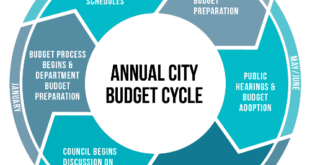By Jim Stasiowski

This month, I depart from my usual presentations of strategy and tactics, many of which are my thoughts and opinions rather than facts that I can support with objective proof.
In other words, at least some of you probably stand up and shake your fists at my dang fool thoughts and opinions.
That’s good. Writing should provoke responses.
But today, you just have to sit down, shut up and take your medicine. I’ve been keeping something of a log of misuses that have, over the decades, prompted me to grind my teeth down to mere nubs, and all of the prescriptions I offer today are backed by The Dictionary. (And, for the record, I capitalized “The” and “Dictionary” because The Associated Press Stylebook decrees that we use “Webster’s New World College Dictionary, Fifth Edition,” published in 2014, so please, stop using online dictionaries or other charlatans.)
Two things I always have to look up in The Dictionary:
I never can remember whether “firsthand,” “secondhand,” etc., are one word or hyphenated. As you can see, they are written as one word each.
And I never can believe that the past tense of “cling” is “clung,” but it is.
Common errors:
It’s “nonprofit organization,” not “non-profit organization.” And, if you like brevity, the word “nonprofit” can be used as a noun, so just delete “organization.”
Here’s a teeth-grinder: “They waited for awhile then left.” “Awhile” means “for a while,” as in, “They waited awhile then left.” You may, however, write, “They waited for a while.”
Because we are erratic human beings, sometimes we add words we don’t need, and sometimes we subtract words we do need. Here’s an example of an unwise subtraction: “Miller declined comment for this story.” Technically, that means someone said to Miller, “Here’s a comment; you want it?” What the writer really meant was, “Miller declined to comment.”
Notice the problem here: “Norton said the misbehavior was widespread, but every student will not be disciplined.” It’s sad that we are so careless with our placement of “not.” Technically, in the above sentence, Norton said that no students will be disciplined. What Norton meant is that some will be, some won’t. So we want “not” to modify “every”: “… but not every student will be disciplined.”
Many people make the mistake of using a singular noun early in a sentence, then a plural pronoun later: “The agency concluded that the damage was intentional, and they recommended beefing up security.” The noun “company” is singular, but “they” is plural, even though “they” takes “company” as its antecedent.
Almost always, we can make the noun plural: “The company’s security officers concluded that the damage was intentional, and they recommended … .” Sometimes changing the pronoun is preferable: “The company’s move is on Thursday, and it will reopen on Saturday.”
Let’s stop overusing the noun “facility.” It’s almost always a synonym for “building,” or a synonym for a specialized type of building, such as a “clinic” or “plant” or “center.” On rare occasions, it’s an OK usage, but usually because, out of carelessness, we simply forgot to ask what the building is used for.
Similarly, let’s stop using the nouns “individual” and “individual” when what we really mean is either “person” or “people.” “Individuals” sounds like something straight out of a police report.
Be careful with the verbs “pour” and “pore.” They are pronounced identically, but “pour” refers to the act of emptying a liquid onto or into something, while “pore” means to read with special attention. “While Jack was poring over the legal brief, Jill poured beer into his glass.”
Do not use “see” or “saw” as a verb referring to what someone or some entity experienced. This is a bad usage: “The city saw an increase of 20 building permits last month.”
The use of “saw” there is what we call a false metaphor, that is, there was no act employing the sense of sight, either literally or figuratively. Using “saw” in that context is a weak attempt to add action to a non-action experience. Better: “The city issued 20 more building permits in January than in December.”
If I ever see “negatively impact” again, I probably will negatively impact the writer. “The oil spill negatively impacted the river” is an absurdly profligate usage. “Contaminated” works there, but in other contexts, such verbs as “hurt” and “damaged” are very much preferred.
The joy of The Dictionary
Because I wrote “profligate” in the preceding item, I thought I should look it up to make sure I was using it properly, and yes, the second definition is “extremely wasteful.”
But en route to “profligate,” I landed a few pages short, and my eye was caught by … by … well, depending on your sensibilities, I either can tell you what my eye was caught by, or I can say it is a synonym for “urinate.”
Why I stopped on that word, I cannot explain. But I noticed that the word was derived from the French, and the reason the French word was created was that it was “echoic” of the sound of urination.
I had never encountered the word “echoic,” but I had known since probably fifth grade the word “onomatopoeic,” meaning the word resembles the sound the word describes.
So I looked up “echoic,” and the second definition is “onomatopoeic.”
You won’t have that kind of thrill from any online dictionary.
 Nevada Press Association The best in Nevada journalism since 1924
Nevada Press Association The best in Nevada journalism since 1924



